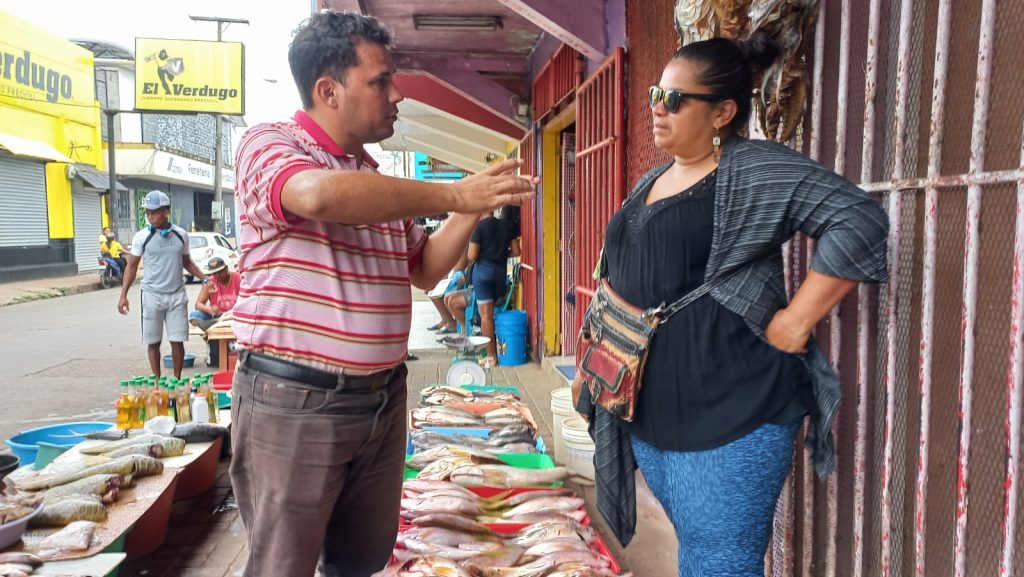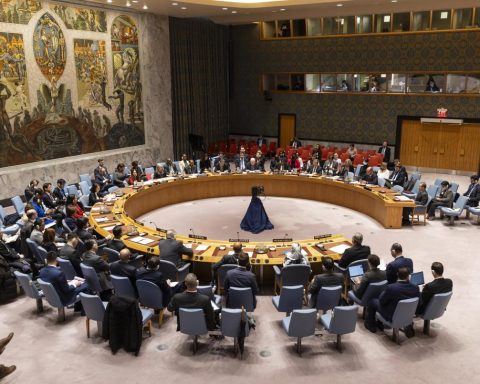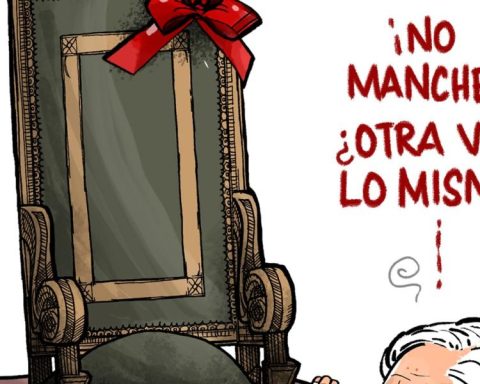Violence in the streets is a danger for coastal women who struggle every day to support their families. Many leave their homes when the sun does not even “rise”, and more than one has been a victim of crime that plagues some neighborhoods in Bluefields.
Most of these women are heads of households. They leave their homes and go to various parts of the city to offer their products, with the lively hope of bringing livelihood to their home. “My children depend on what I sell,” said one of them, who laments the lack of security on the streets.
«In my case, I have five children, they all depend on this small business that I have; the sale of fish. My routine starts at 4:00 in the morning, at that time I prepare their food and I take them to school, then I’m going to sell,” said Yahaira Zamora, a merchant who has been selling street vendors for 15 years.
Related news: Feminist organizations: “Passiveness with femicides makes the dictatorship an accomplice”
Zamora regrets that her children grow up in a city where juvenile delinquency and violence in the streets rule. “I must look for strategies to keep them involved in healthy activities, in sports to prevent them from getting into vices, in our city we have great difficulties and insecurity grows every day, we sell every day in the streets and here there are no security conditions” , She complained.
Small businesses threatened
In Bluefields, Caribe Sur, one of the busiest areas for local commerce is the Barrio Central. Its streets are crowded with small improvised businesses in the green areas, streets and sidewalks where the population travels every day.
In this neighborhood, the municipal commerce establishments are also located. Here robberies with force and intimidation are more frequent every day and those who must guarantee security and public order are conspicuous by their absence.
In recent months, there have been robberies in local establishments, resulting in injuries from bladed weapons. The owners call the police, however, they do not arrive at the place, these are some of the constant complaints from citizens in this area of the municipality.
«Cases of violence on public roads are increasingly worrying. We are mostly women, the ones who run businesses in this city, we believe that it is urgent that the police seek their resources to respond to the calls of the population, “commented another merchant.
«At any time of the day we are exposed to being victims of crime, what are we going to do? Defend ourselves? It seems that it is what we have left », he pointed out.

Luz Marina Bermúdez is one of the many women who leave early to complete their workday, to return with money for household expenses. For her, the rate of violence in the region and specifically towards women is worrying. “Many women continue to die at the hands of violent men who are fleeing after taking their lives, we are also concerned that they are killed in the streets, they are robbed and these cases are increasing,” she said.
He pointed out that what is most worrying is that crime and violence against women is growing and the authorities do nothing to stop it. “It is like an epidemic, we need to create awareness because as a society sometimes we are indifferent and we become oblivious to the problem. We must protect ourselves because the state forgets us,” she added.
“There is no protection for women”
In the Caribbean regions, cases of violence and death against women continue to be one of the issues of greatest concern for communities.
In Nicaragua, the authorities refuse to admit some cases of violence against women and girls and remove them from the femicide statistics because it is not convenient for them to admit that women do not have any protection against sexist violence, they denounced.
“It’s a problem,” said an activist against violence against women. “There is no femicide for the authority if the woman is murdered by a stranger or a man with whom she did not have a relationship. That is not acceptable », she reproached.
In addition, he stressed that these crimes have serious consequences. “At least 62 minors, including children and adolescents, have been orphaned in 2022 as a result of gender violence, more than 57 women were murdered in this violent spiral,” she stressed.

The activist recalled that this year, neither, seems to show that women have peace. “So far there are more than 16 women murdered by her attackers, many have been attacked inside and outside the country. And the Caribbean continues to be the area where there is the most violence against them,” she said.
“We need the state to guarantee effective protection measures directed towards women, we continue to live in a system of aggressor and sexist men and the authorities prioritize other issues of a political nature, completely neglecting the safety of women. There is no refuge for women despite the existence of the Women’s Police Stations again », criticized Jennifer Brown, a coastal defender of women’s rights.
“Many of us, as coastal women and as defenders of their rights, have experienced risky experiences with the women of our region, however, we notice that there is also an indifference from society itself with this issue of protecting the lives of women, This worries us a lot,” he said.
For Brown, measures are urgently needed to preserve the lives of women throughout the country. “And it should be to protect them in their homes and on the streets,” she recommended.
By United Voices

















